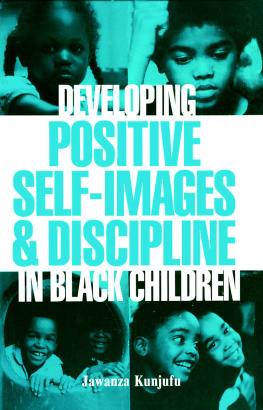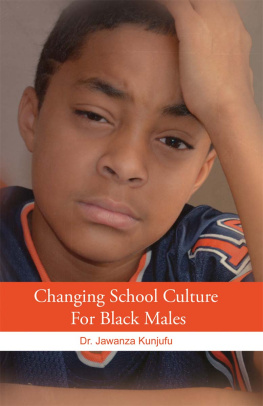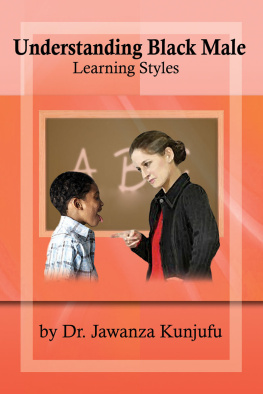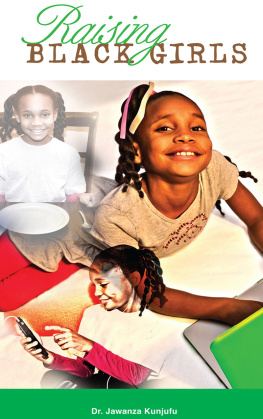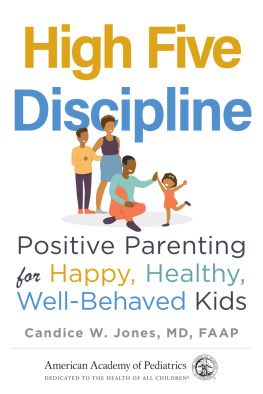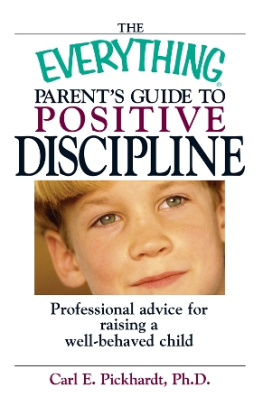Jawanza Kunjufu - Developing Positive Self-Images and Discipline in Black Children
Here you can read online Jawanza Kunjufu - Developing Positive Self-Images and Discipline in Black Children full text of the book (entire story) in english for free. Download pdf and epub, get meaning, cover and reviews about this ebook. year: 2020, publisher: African American Images, genre: Children. Description of the work, (preface) as well as reviews are available. Best literature library LitArk.com created for fans of good reading and offers a wide selection of genres:
Romance novel
Science fiction
Adventure
Detective
Science
History
Home and family
Prose
Art
Politics
Computer
Non-fiction
Religion
Business
Children
Humor
Choose a favorite category and find really read worthwhile books. Enjoy immersion in the world of imagination, feel the emotions of the characters or learn something new for yourself, make an fascinating discovery.
- Book:Developing Positive Self-Images and Discipline in Black Children
- Author:
- Publisher:African American Images
- Genre:
- Year:2020
- Rating:3 / 5
- Favourites:Add to favourites
- Your mark:
- 60
- 1
- 2
- 3
- 4
- 5
Developing Positive Self-Images and Discipline in Black Children: summary, description and annotation
We offer to read an annotation, description, summary or preface (depends on what the author of the book "Developing Positive Self-Images and Discipline in Black Children" wrote himself). If you haven't found the necessary information about the book — write in the comments, we will try to find it.
Developing Positive Self-Images and Discipline in Black Children — read online for free the complete book (whole text) full work
Below is the text of the book, divided by pages. System saving the place of the last page read, allows you to conveniently read the book "Developing Positive Self-Images and Discipline in Black Children" online for free, without having to search again every time where you left off. Put a bookmark, and you can go to the page where you finished reading at any time.
Font size:
Interval:
Bookmark:
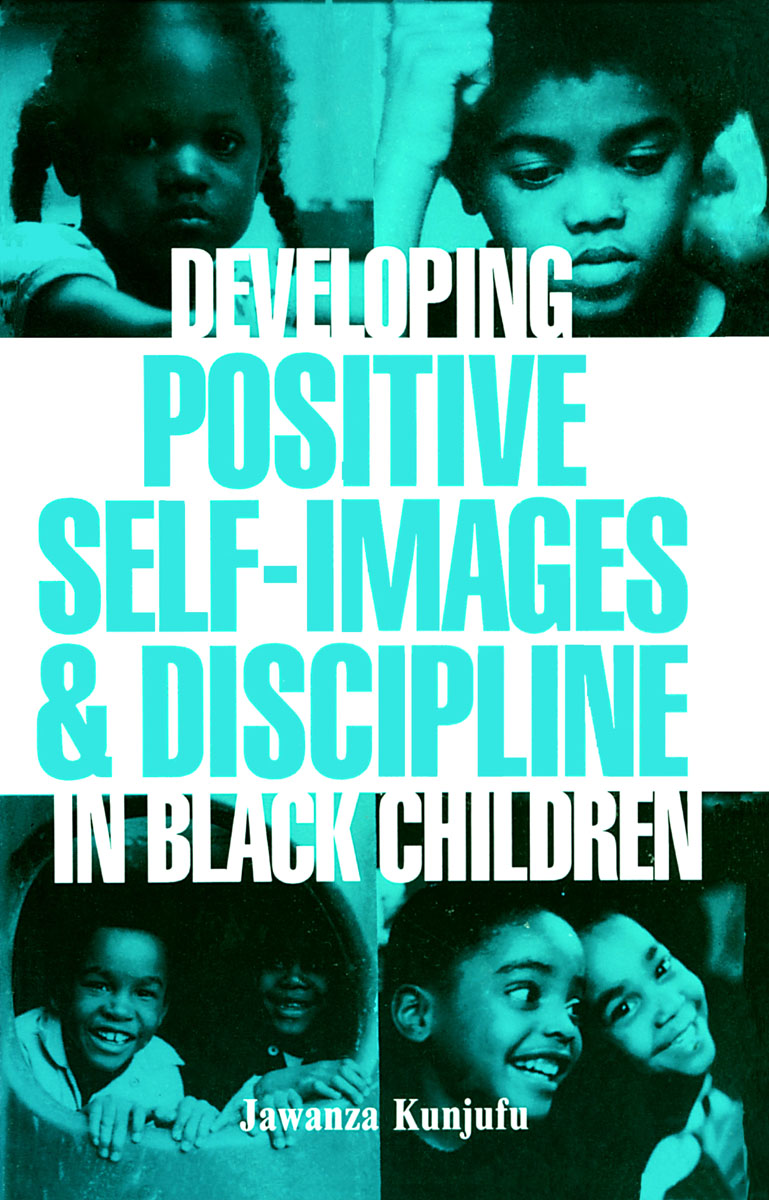
Cover design by Eugene Winslow
Photo credits: Kawana Emerson Sherman
Second edition, thirteenth printing
Copyright 2000 by Jawanza Kunjufu
(Kiswahili far dependable & cheerful)
All rights reserved. No part of this book may be reproduced, stored in retrieval systems or transmitted in any form, by any means, including mechanical, electronic, photocopying, recording or otherwise, without prior written permission of the publisher.
DEDICATION
This book is dedicated to Vergeous Gillam who encouraged me to put my major workshop, also in cassette, into book format. It is also dedicated to all African-American children who I believe have a message to tell if only we will listen.
SPECIAL THANKS
Special thanks is given to Eugene Winslow, and Schavi Diarra for their editorial assistance. A special thanks is given to Naim Akbar for the introduction and editorial advice. Deep respect and appreciation are given to Sanyika Anwisye and Kawana Emerson Sherman for their scholarship lended to the book. Sincere gratitude is given to Vera Brent and my mother, Mary Brown, for their technical contributions.
COMMITMENT
And on this day, we commit our children to African American excellence. Guide us, to give our children wisdom and responsibility, so they as African children before them, will ride on a camel to the African paradise, Ahera. And if we fail, may our children denounce us, and our names be forgotten, for as long as the sun shines and the water flows.
The problem of educating Black children in the American context is as old as the presence of Blacks in this setting. The question is also as complex as the experience of the African-American. Notables such as Dr. W.E.B. DuBois, Bishop Henry M. Turner, Dr. Carter G. Woodson, Marcus Garvey, Elijah Muhammad and Dr. Martin Luther King, Jr. have all addressed the issue of education as being one of fundamental importance in the progress of African-Americans. The example of Booker T. Washington, Mary McCleod Bethune, Dr. Benjamin Mays and many others are legendary in their commitment to developing institutions for the express purpose of educating Black youth. Frankly, Black history in America is completely imseparable from the attempt to handle the challenge of Black education in this setting of historical oppression and thwarted opportunity.
Many contemporary Black scholars have continued to address this same question of educating the African-American child. The inescapable reality is, and always has been, that the liberation of African-Americans is dependent upon an effective education. We emphasize effective because so much of our education has been virtually useless in accomplishing the objective of liberation. The process of miseducation as described by Dr. Carter G. Woodson in 1931 has continued to impede our progress as an educated people. Dr. Woodsons conclusion that the majority of educated Blacks were all but worthless in the uplift of their people, remains an issue of deadly accuracy. His analysis was that the seat of the trouble was in what African-Americans were being taught.
The ancient function of education was to do no less than to develop positive self-images and discipline for the adherents of the educational system. The assumption that existed in those times of greater illumination than these was that the human being was already equipped with the tools of enlightenment. The word education did not assume that critical knowledge had to be imposed from without, but as the word itself implies, it was to be educed from within. The method for educing knowledge was done through the cultivation of an inner discipline which brought these resources to the fore. In Ancient Kemit (called Egypt) the original teachers cultivated self-esteem or a positive self-knowledge by fostering an awareness of ones historical (and/or mythological) origins which gave insight into the resources that each individual contained by virtue of his Divine and genetic legacy. The secret for such enlightenment was the Ancient Edict of Man know thyself, inscribed by these ancient scholars on the portals of their Temples (which were simultaneously universities). The positive self-image emerged from the cultivation of self-knowledge. The application of the knowledge which was obtained was manifested through self-discipline. So the things most critical in an educational system is to know oneself, and to know how to manage that self. This persisting deficiency in the education of African-Americans has created the great difficulties of re-ascendency which we have experienced as a people. Dr. Woodsons identification of our problem as existing in what we were taught seems to still be a quite relevant assessment of our educational difficulties.
This problem described so accurately by Dr. Woodson over fifty years ago is even more of a problem as we enter the twenty-first century and find African-American youth being not only miseducated but actually de-educated. De-educated means that they are being systematically excluded from the educational system and/or being systematically destroyed within that system. This is an issue of great complexity and magnitude, and it takes a thinker of considerable talent to tackle the numerous dimensions of this problem. Jawanza Kunjufu is such a thinker and this book addresses the issue of Black education in a very readable and pragmatic way.
Jawanza Kunjufu organizes his approach to Black education around the issue of the importance of positive self-images and discipline as a prerequisite for the effective education of African-American children. He takes a fresh approach to the age-old problem of self-esteem and its impact on education. This fresh approach is one which begins to analyze the source of self-esteem problems for African-American children and begins to propose some concrete resolutions for those problems.
One of the intriguing things about Jawanza Kunjufus approach is that he lays a foundation for the unique problems which African-Americans face in the educational system. He discusses the political meaning of Black education, such as the media and the schools curriculum. Then his solutions are ones which have relevance to the education of all children. What he proposes as a relevant curriculum and appropriate teaching techniques are not approaches that have any particular unique applicability to African-Americans. The major hindrances to effective Black education, he apparently views as consistent with the problems of American education in general. He attributes at least part of the Black educational problem to the banking concept in education, the certainty principle, rote learning, and several other major criticisms which non-Black writers have advanced about contemporary education in general. The interesting thing about this approach is that it sees the Black educational problem as a specific problem that is apparently aggravated by occurring in the context of an educational system that is already grossly inadequate even for the people it has been constructed to serve.
Despite this general analysis and suggestions geared towards correcting these general educational problems, he doesnt neglect the specific needs of the African-American child within this context. He addresses the unique cultural and learning styles of African-American children and the need for the curriculum to take those styles into account.
In addition to the problem of self-esteem, Jawanza Kunjufu addresses the problem of discipline confronting children in general, and specifically discipline as it relates to the African-American child. Again, he draws upon the contemporary issues of declining discipline within the educational and home environments while demonstrating the unique meaning of this problem for African-Americans. He maintains an analytical perspective which views the African-American child as emanating from a cultural and value base that is fundamentally different from the European-American cultural base. This perspective gives Kunjufus discussion a solvency which far exceeds similar discussions by educators who persist in seeing African-Americans as no different from Europeans. At the same time, the argument put forth is neither pat nor myopic. He identifies the interactive impact of being Black and American.
Next pageFont size:
Interval:
Bookmark:
Similar books «Developing Positive Self-Images and Discipline in Black Children»
Look at similar books to Developing Positive Self-Images and Discipline in Black Children. We have selected literature similar in name and meaning in the hope of providing readers with more options to find new, interesting, not yet read works.
Discussion, reviews of the book Developing Positive Self-Images and Discipline in Black Children and just readers' own opinions. Leave your comments, write what you think about the work, its meaning or the main characters. Specify what exactly you liked and what you didn't like, and why you think so.

